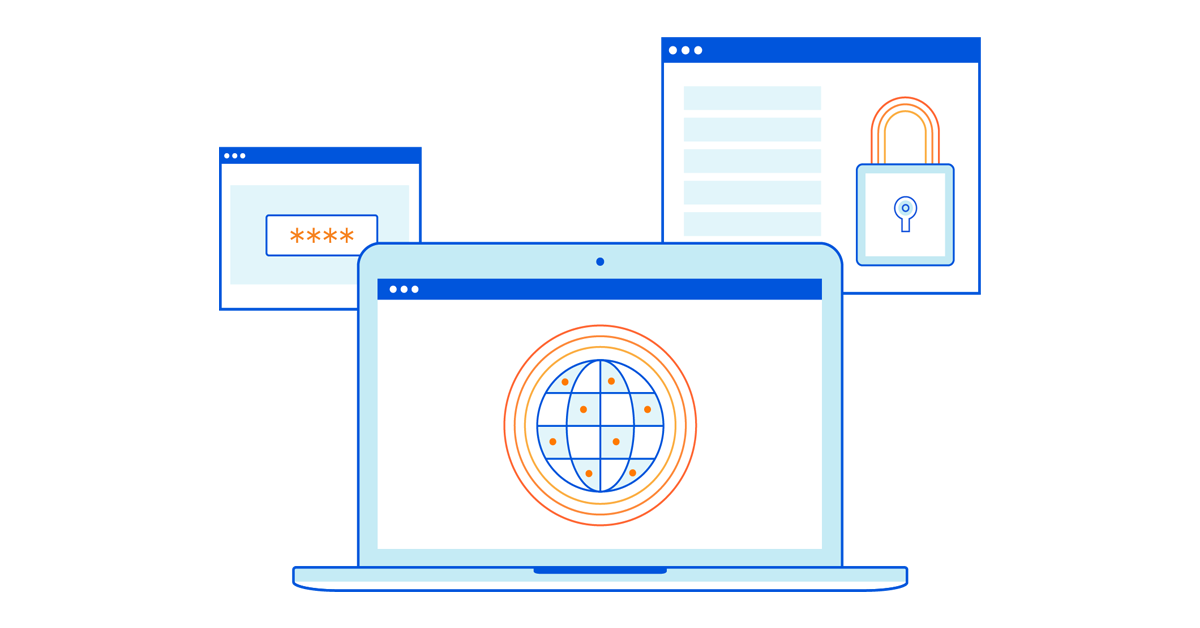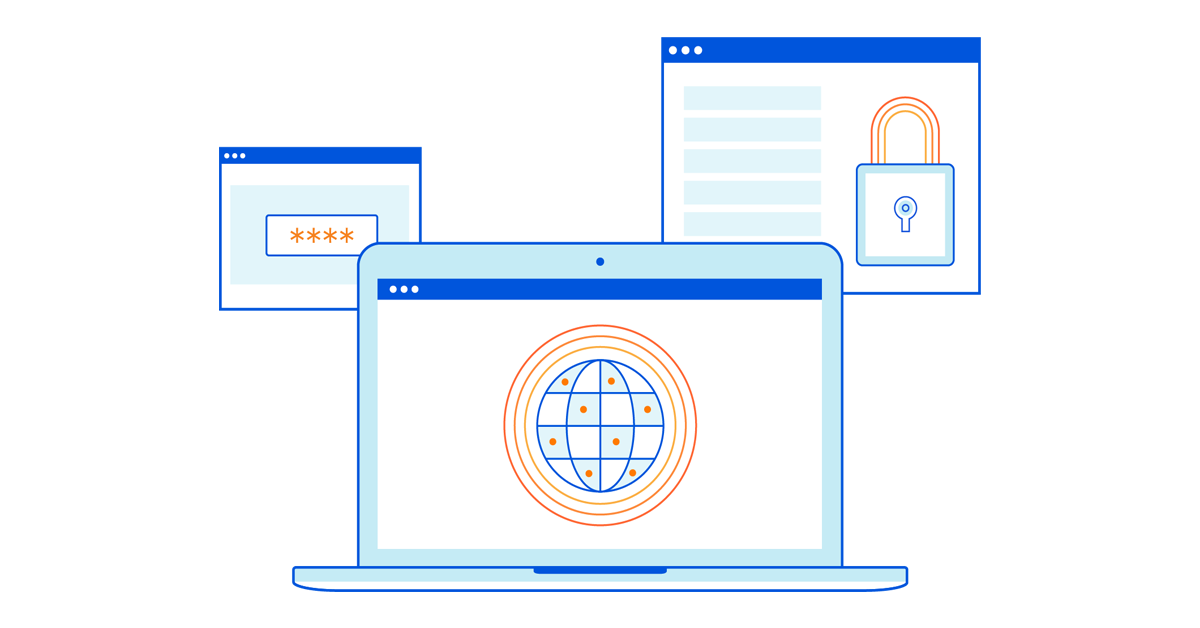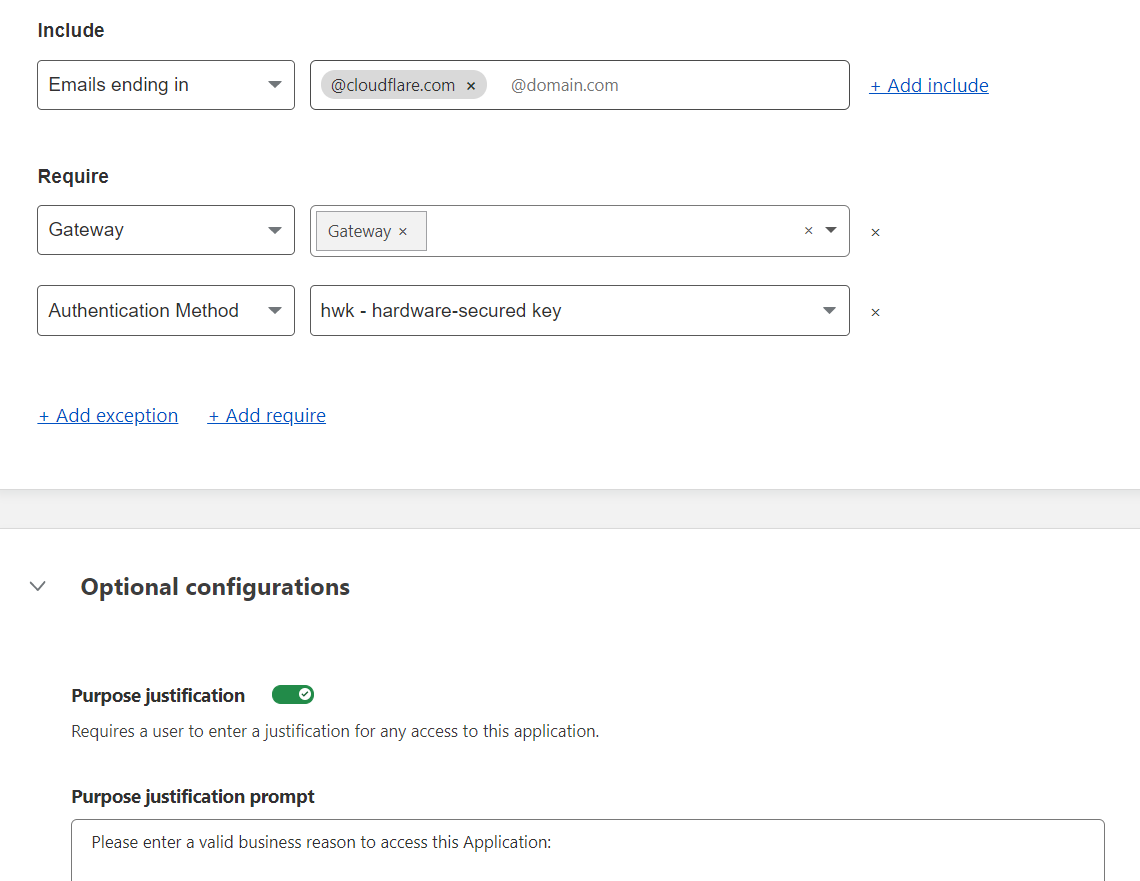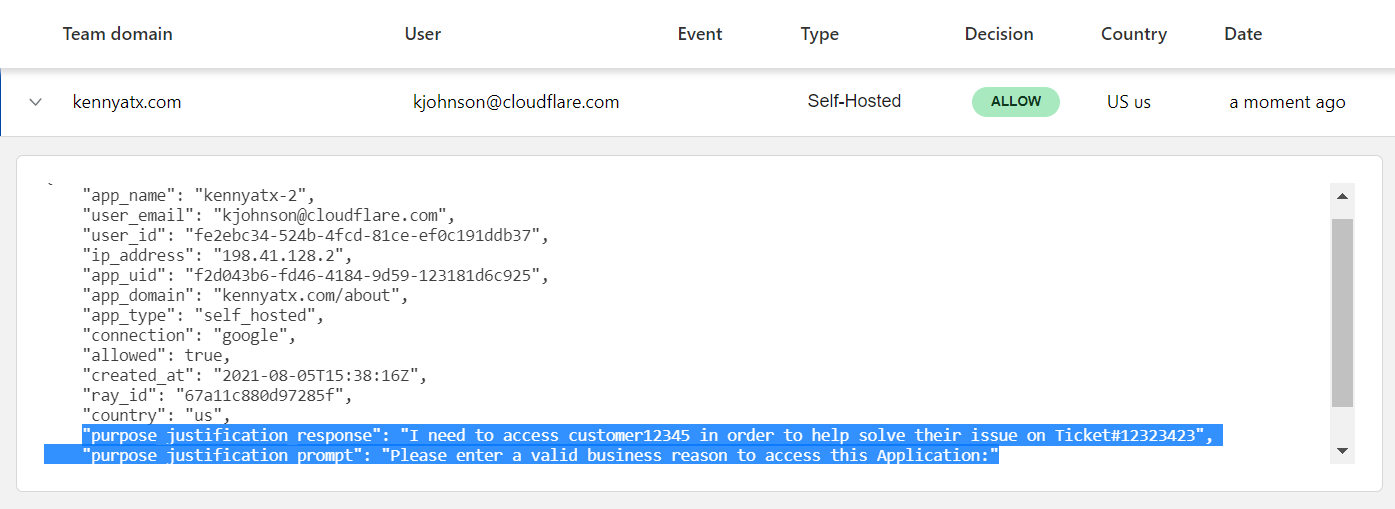Post Syndicated from Molly Cinnamon original https://blog.cloudflare.com/access-purpose-justification/

The digital world often takes its cues from the real world. For example, there’s a standard question every guard or agent asks when you cross a border—whether it’s a building, a neighborhood, or a country: “What’s the purpose of your visit?” It’s a logical question: sure, the guard knows some information—like who you are (thanks to your ID) and when you’ve arrived—but the context of “why” is equally important. It can set expectations around behavior during your visit, as well as what spaces you should or should not have access to.
Digital access follows suit. Recent data protection regulations, such as the GDPR, have formalized concepts of purpose limitation and data proportionality: people should only access data necessary for a specific stated reason. System owners know people need access to do their job, but especially for particularly sensitive applications, knowing why a login was needed is just as vital as knowing who, when, and how.
Starting today, Cloudflare for Teams administrators can prompt users to enter a justification for accessing an application prior to login. Administrators can add this prompt to any existing or new Access application with just two clicks, giving them the ability to:
- Log and review employee justifications for accessing sensitive applications
- Add additional layers of security to applications they deem sensitive
- Customize modal text to communicate data use & sharing principles
- Help meet regulatory requirements for data access control (such as GDPR)
Starting with Zero Trust access control
Cloudflare Access has been built with access management at its core: rather than trusting anyone on a private network, Access checks for identity, context and device posture every time someone attempts to reach an application or resource.
Behind the scenes, administrators build rules to decide who should be able to reach the tools protected by Access. When users need to connect to those tools, they are prompted to authenticate with one of the identity provider options. Cloudflare Access checks their login against the list of allowed users and, if permitted, allows the request to proceed.
Some applications and workflows contain data so sensitive that the user should have to prove who they are and why they need to reach that service. In this next phase of Zero Trust security, access to data should be limited to specific business use cases or needs, rather than generic all-or-nothing access.
Deploying Zero Trust purpose justification
We created this functionality because we, too, wanted to make sure we had these provisions in place at Cloudflare. We have sensitive internal tools that help our team members serve our customers, and we’ve written before about how we use Cloudflare Access to lock down those tools in a Zero Trust manner.
However, we were not satisfied with just restricting access in the least privileged model. We are accountable to the trust our customers put in our services, and we feel it is important to always have an explicit business reason when connecting to some data sets or tools.
We built purpose justification capture in Cloudflare Access to solve that problem. When team members connect to certain resources, Access prompts them to justify why. Cloudflare’s network logs that rationale and allows the user to proceed.
Purpose justification capture in Access helps fulfill policy requirements, but even for enterprises who don’t need to comply with specific regulations, it also enables a thoughtful privacy and security framework for access controls. Prompting employees to justify their use case helps solve the data management challenge of balancing transparency with security — helping to ensure that sensitive data is used the right way.

Distinguishing Sensitive Domains
So how do you distinguish if something is sensitive? There are two main categories of applications that may be considered “sensitive.” First: does it contain personally identifiable information or sensitive financials? Second, do all the employees who have access actually need access? The flexibility of the configuration of Access policies helps effectively distinguish sensitive domains for specific user groups.
Purpose justification in Cloudflare Access enables Teams administrators to configure the language of the prompt itself by domain. This is a helpful place to remind employees of the sensitivity of the data, such as, “This application contains PII. Please be mindful of company policies and provide a justification for access,” or “Please enter the case number corresponding to your need for access.” The language can proactively ensure that employees with access to an internal tool are using it as intended.
Additionally, Access identity management allows Teams customers to configure purpose capture for only specific, more sensitive employee groups. For example, some employees need daily access to an application and should be considered “trusted.” But other employees may still have access, but should only rarely need to use the tool— security teams or data protection officers may view their access as higher risk. The policies enable flexible logical constructions that equate to actions such as “ask everyone but the following employees for a purpose.”
This distinction of sensitive applications and “trusted” employees enables friction to the benefit of data protection, rather than a loss of efficiency for employees.

Auditing justification records
As a Teams administrator, enterprise data protection officer, or security analyst, you can view purpose justification logs for a specific application to better understand how it has been accessed and used. Auditing the logs can reveal insights about security threats, the need for improved data classification training, or even potential application development to more appropriately address employees’ use cases.
The justifications are seamlessly integrated with other Access audit logs — they are viewable in the Teams dashboard as an additional column in the table of login events, and exportable to a SIEM for further data analysis.

Getting started
You can start adding purpose justification prompts to your application access policies in Cloudflare Access today. The purpose justification feature is available in all plans, and with the Cloudflare for Teams free plan, you can use it for up to 50 users at no cost.
We’re excited to continue adding new features that give you more flexibility over purpose justification in Access… Have feedback for us? Let us know in this community post.